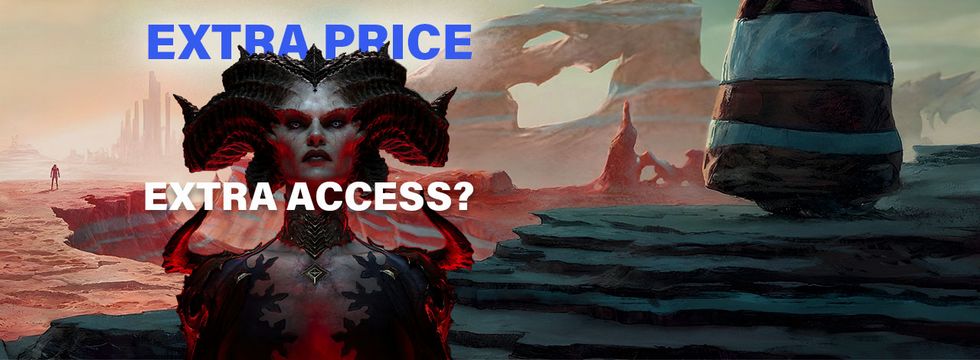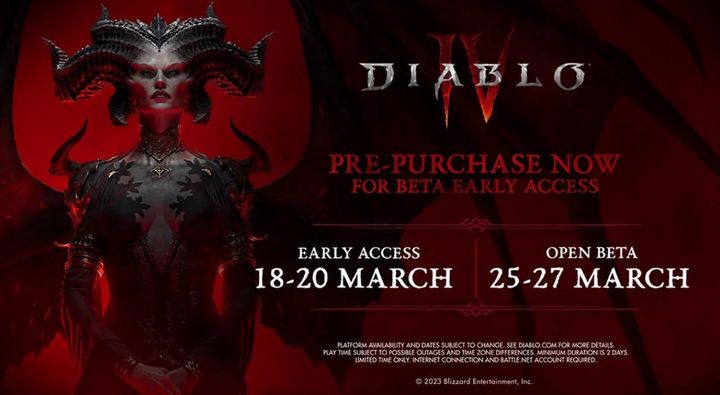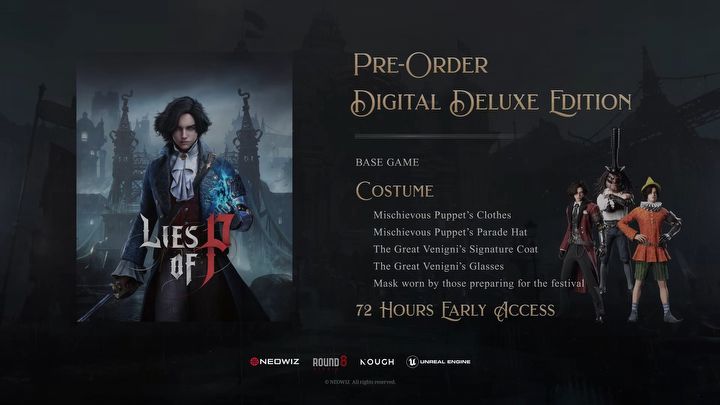author: Titus Stobinski
70 Bucks for a Game is a Lot, Yet Diablo and Starfield Want Us Pay Even More
Games have become pricey, and they don't seem to stop. Two of this year's biggest titles want us to pay extra for playing them early – the question is: is it even ethical?
Pre-premiere, early premiere, and proper premiere - how to sell us our free time and take a lot amount of money for it.
Forza Motorsport - 5 days
Starfield - 5 days
Mortal Kombat 1 - 5 days
Diablo IV - 4 days
Lies of P - 3 days
The above list includes five AAA titles (well, except for Lies of P, because it's still an AA title), i.e. games with a big budget, representing (presumably) the highest level of execution. Most of them will soon land on our SSD drives, one appeared on the market just over a month ago. The bolded number of days next to the names, however, is an increasingly spreading, but still relatively budding business model. An action aimed at monetization or - using simpler terminology - transforming something into money. In this particular case, we are talking about increasing profits by exploiting human impatience and the desire to discover something new.
Changes for the better, changes for the worse.
The recent years in the video game industry have been a real hurricane of changes. We've gone through a massive invasion of worthless DLC, such as the long ridiculed Armor for the Horse, and have also experienced an assault on the secondhand market in the form of online passes. In the meantime, we have made a journey from reluctance and doubt to regular use of digital game distribution - because it is easier and faster, and it even happens that during one of the hundreds of sales the price will flirtatiously winks at us. A little later came the era of season passes, by which a developer, taking a certain amount of money from us, guaranteed access to all the add-ons the factory could produce during the period of support for a particular title.
Today, none of these sales forms generate much excitement anymore. The dust went down, was drawn into a cable-free, bagless and unimaginably quiet vacuum cleaner, while any remains were carefully washed away. As gamers, we live among a torrent of subscriptions, getting extra gigabytes in patches for launch releases and leaving more and more money in the games.
Acting under the pressure of expectations
But let's go back three paragraphs and focus on the "sweet" lament of the future, which is undoubtedly earlier access to full-size AAA titles. I would like to point out that we're not talking about a wide library of games in Early Access at this point, where, after all, we're entering into a rather specific consumer-developer arrangement. Here, in exchange for increased tolerance to all sorts of bugs, we actively participate in the entire process of development and implementing improvements to the game. We give credit of trust and agree for a longer use of the so-called. semi-finished product.
The situation is then relatively clear from the start (although there are cases of developers who evidently are not interested in full-fledged premiere) and the whole thing is kind of a "win-win" situation. Giving a few days' early access to the title, informing about it so late that the whole hype train could have already gained good momentum, is something totally, completely different. Often with such information, pre-orders are also launched. So when you add together the increased anticipation for a title, the opportunity to play it sooner, and acting on emotion, you find that it's very easy to throw developers and publishers a few extra pennies.
I realize that certain series (for example, FIFA) have been using the methods I've described for a long time, and the people at whom this title is addressed have become accustomed to EA's practices. However, we are currently talking about the spread of this phenomenon on a much larger scale.
I pay, I demand
The price difference between the standard edition and the one giving early access to the game is not the lowest. In the case of such Forza Motorsport, we are talking about the amount of $20, Bethesda demands a similar amount from us for the privilege of launching Starfield sooner, the creators of Lies of P are a little less greedy, as they ask for "only" $10. There are many such examples, and new ones seem to spring up like mushrooms after the rain. And hello, some of us are using Game Pass, so early access to Starfield or Forza is an even bigger expense. Of course, we are still talking about an optional choice that no one is forcing anyone to make. However, the naked eye can see that we are dealing with an increasingly popular trend, tested on a wide audience and essentially effortless for the developer. With the entire product ready, the whole thing closes with simply allowing the user to download the software first.
Games are getting more expensive. The cost of their production, marketing activities, as well as the one most directly hitting the consumer - the price of a given title on the day of its launch, is increasing. Global inflation is heavily impacting all industries, so it's no surprise that it also affects this one. The production capacity shortage and extended production time in the AAA segment has already increased so much that we are waiting not a few, but even a dozen years (I'm writing to you, Bethesda) for the next installments of well-known series. All these factors make creators search even harder for ways to maximize profits, and an easy profit of nearly 40% of the product's base value sounds like a wet dream for board members.
However, as the cases of Hogwarts Legacy and Diablo IV show, a high demand for money doesn't necessarily mean high quality of the entire project. The problem of starting an adventure in the fairy tale school of magic via Steam or the need to purchase virtual currency in Blizzard's new game in order to be able to use the product you've already purchased brings a smile of pity and makes you question whether it's really worth going further. By the way, I wonder if all these people got their money spend on the platinum packages back, if anyone even remembered to claim it in the heat of slaughtering the demons.
All Quiet on the Western Front
The market situation doesn't indicate that offering early access will suddenly disappear from our view. You just need to browse a few threads on Reddit to see that it's not a problem to find people in the depths of the internet who are fine with such actions - and it's understandable. They usually justify their decision by the fact that for relatively little money they receive several additional days of playing, which is hard at a time when they have work or family responsibilities. So when such access coincides, for example, with a day off, making a decision becomes somewhat easier for them.
Let's say it's ok, when it comes to games, where the main or only core of the gameplay is single player mode. Then, in the worst case scenario, someone will go clean the basement of bloodthirsty rats sooner, or find a sword unseen for centuries, heading towards the red marker on the map a few steps away. It's worse when this practice becomes firmly established in multiplayer productions, in which a few days of handicap will realistically affect the achieved results - especially in the early stages of the game.<br> So it's not surprising that part of the community doesn't look favorably on such solutions.
Tarantino, money and dogs
I didn't intend and don't intend in this text to express an opinion on whether it is worth paying for a few days of prior play. Each of us decides for ourselves on what and how we spend our hard-earned money. However, it's worth bearing in mind that as the final stop in this specific chain, we have a decisive influence on whether or not corporations will follow this path - after all, we vote with our wallets.
And as Steve Buscemi once said in Reservoir Dogs - money it’s the world’s smallest violin





